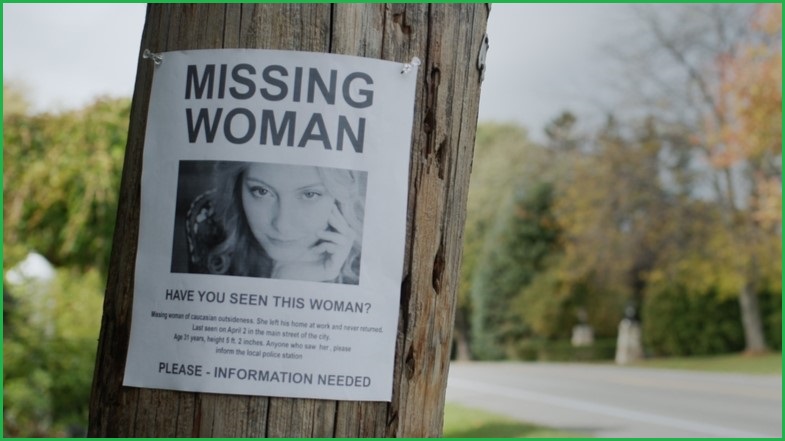On 9 January 2023, 32-year-old mother of two Angie went missing from Alice Springs, last seen fleeing a traffic incident into the surrounding bush land.
Five months later, 32-year-old Belgian national Celine disappeared during a hike near Philosopher Falls, Tasmania.
And in May this year, 82-year-old Peter decamped from an aged care facility in Childers, Queensland, where he was last seen travelling on foot in a black coat and jeans.
These are just three of the approximate 2,600 people Australia currently considers “long-term” missing persons, where their location has been unknown for more than three months.
And while authorities have traditionally turned to news platforms and missing persons registers for public support on such cases, an upcoming missing persons event will see police open up ongoing investigations to the expertise of Aussie hackers.
On Friday, 13 September, the National Missing Persons Hackathon (NMP Hackathon) will host more than 650 ethical hackers and cyber security professionals as they work to generate leads on five long-term missing persons cases.
Taking place both virtually and in person at all Australian capital cities, the hackathon aims to collate information from publicly available sources, otherwise known as open-source intelligence (OSINT).
Participants are expected to provide detailed, actionable information reports which will be submitted directly to the Australian Federal Police’s National Missing Persons Coordination Centre (AFP NMPCC) for further examination.
While the NMP Hackathon previously ran in 2019 and 2020 – and generated some 9,000 leads across 1,104 participants to date – founder Linda Cavanagh stressed this year’s hackathon will have a particular focus on “high quality information”.
“We want participants to dive deeper into each case and not just gather data,” said Cavanagh.
“That one crucial piece of information [could] unlock a missing persons case for loved ones and law enforcement.”
Cavanagh further explained state and territory police provide cases which “best fit the criteria for the event” – meaning the missing person(s) need a known digital footprint from within the last decade, and their family members have provided permission for the case to be included.
Making a difference with ethical hacking
While NMP Hackathon organisers are frequently asked about the ethics of accepting help from hackers, Cavanagh explained the importance of distinguishing ethical, ‘white hat’ hacking from illegal activities.
“The minute you say ‘hacker’ – it doesn't matter whether you've got the word ‘ethical’ behind it – you automatically get that representation of this guy in a hoodie, at a laptop in the dark,” Cavanagh told the Future Secured podcast.
“In its true sense, ethical hackers are vulnerability researchers or security researchers.
“In this context, it's about those people that are actually going out there and utilising their skills through OSINT to find those pieces of information that just don't pop up on a Google search.”
The AFP NMPCC reported nearly 56,000 missing cases last year – over 150 every day – and while the bulk of these are resolved, there remains approximately 2,600 long-term missing persons at any given time.
Furthermore, at least 12 other people on average – typically family and friends – suffer a significant psychological, emotional, and financial impact when someone is missing for a significant amount of time.
When asked whether families of the missing persons are directly involved in the event, Cavanagh told Information Age that in 2019, a father whose son had disappeared “with no trace” attended the hackathon.
“It was so emotional, and genuinely heartwarming,” said Cavanagh.
“He was absolutely filled with joy that so many people were looking for his son.”
While Cavanagh couldn’t directly comment on ongoing investigations, she confirmed the 2020 event saw police receive 40 “brand new items of information” from the hackathon.
“That in itself is a win in our books,” said Cavanagh.
Tracking digital footprints
Points will be allocated to participants based on the quality of leads they provide – with Chris Burton, hackathon judge and co-founder of cyber security company Cyburton, explaining what makes a “high-quality” lead.
“What might qualify is something that could be time based,” said Burton.
“Something recent where the missing person or someone else has touched a digital footprint.”
Burton told Information Age while discovering that someone used to work at McDonald’s, for example, would not be a high-quality lead, recent photos found on social media or data from an online mapping service could be of benefit.
“The accuracy of the information also plays into its quality,” said Burton.
“That may mean using, multiple sources to authenticate a lead as well.”
As for the types of OSINT participants will be looking for, Burton explained anything from social media, blogs and public records, through to geospatial data, public-facing device information, dark web spottings, and metadata may be able to generate a lead.
Cavanagh said while the majority of leads typically come from social media posts, comments and reactions, leads often come from more obscure sources, too.
“There have been [leads from] many other online accounts, such as YouTube and gaming networks,” said Cavanagh.
“Other publicly available data included boat registrations, as well as drone footage.”
Burton further explained that while the “digital footprints” in these cases are being investigated ethically, such data can often be used to put people in a vulnerable position.
“I don’t think people realise what they are putting online daily,” Burton said.
“This event is also a way of creating awareness and making people realise what digital footprint they’re leaving behind – and how they could potentially change their own behaviours.”
The NMP Hackathon welcomes people of all skill levels, with Burton encouraging “anyone who has the ability to go and do searches” to participate.
“The aim is to try and get high quality leads, but it's also there for people to learn and for people to experience what it's like to do investigations around missing people,” said Burton.
If you have any information regarding a missing person, contact Crime Stoppers on 1800 333 000.










